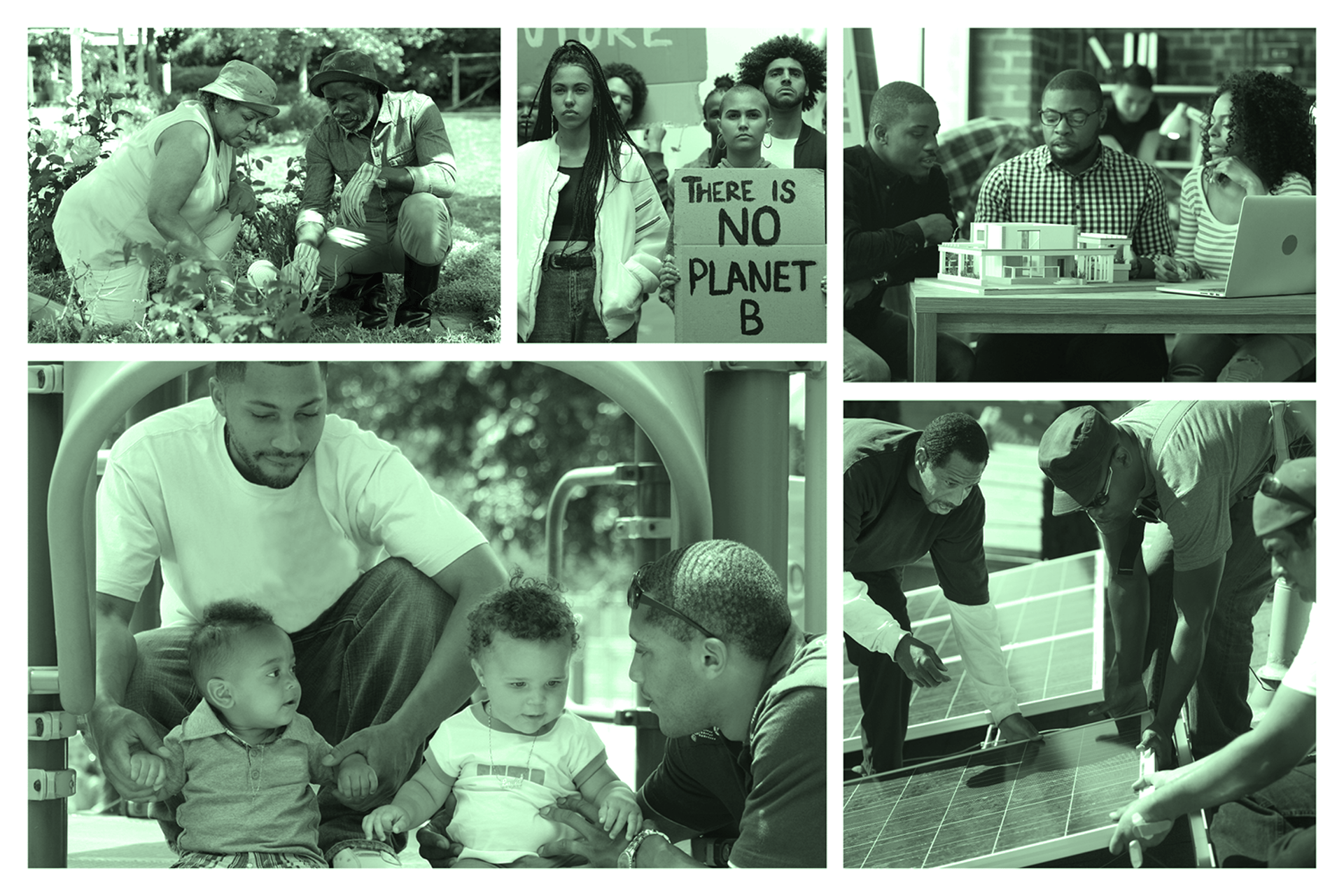Primer Published July 20, 2020 · 4 minute read
Black Americans Want to Hear About Climate—Lessons for Communicators
Jared DeWese, Jackie Toth, & Kate deGruyter

Overview
Black Americans have long borne an unequal burden from environmental racism and face increased risk from the impacts of climate change. But even though they’re concerned about the environment worsening around them, Black Americans aren’t necessarily counting climate change among their top priorities—and they’re not hearing people speak to them on the issue in a manner that resonates.
In February 2020, Third Way and GBAO Strategies held nine focus groups—three each in Detroit, Philadelphia, and Greensboro—with Black Americans who lived in and around those cities. Overall, the research revealed a disconnect between the participants and climate change. Below are some key takeaways from this study; recommendations on how to address this disconnect; and insights for outreach and communications to Black communities.
Climate change not seen as a top priority
Participants cited health care, education, racism, school debt, and crime among their top policy priorities.
Of note, participants cited the following as priorities:
- Trying to survive (even before the most recent deaths of Ahmaud Arbery, Breonna Taylor, George Floyd, and Rayshard Brooks)
- Putting food on the table
- Maintaining access to health care
One participant expressed there is nothing you could do while the federal administration actively denies climate change.
Only some participants saw climate change as an environmental or social justice issue.
Guidance:
Center climate change as the environmental justice issue that it is.
Make it local. Participants were most aware of and concerned about the environmental problems they face in their own neighborhoods.
Connect climate and environmental issues to the adverse health and economic impacts that disproportionately affect communities of color.
- Sea level rise, poor air quality, and extreme weather were noted as “tells” of climate change
- Black Americans are more likely to live in communities within just a few miles of petrochemical refining plants, compromising the air they breathe
- Harvard researchers found that even a small increase of exposure to a common air pollutant to which Black Americans are disproportionately exposed can increase one's chances of dying from COVID-19 by 8%
Be aware that political and technical terminology associated with climate change was mostly unfamiliar in the focus groups. “The Green New Deal” barely registered with participants across the three cities. The term “fracking” was more familiar to a handful of participants, whose views were mostly negative.
Representation matters – Black leaders not identified in the climate discussion
- Participants did not see Black American climate leaders in the climate movement; the people they named as messengers on climate were often white
- Participants said no one is talking specifically to them about climate change or the environment. Multiple participants said that when they hear people address climate change, they hear things like, “It affects us all”
- Several said they only heard politicians talk about climate change at election time
- Many said that neither US political party does a better job on environmental issues than the other
Guidance:
- Ensure public and private conversations and events include Black leaders. As always, representation matters
- Elevate climate experts and leaders who represent the communities you’re trying to reach
- Commit to regular engagement with Black communities on all local issues, including climate change. Avoids a perception of political expedience where engagement or climate discourse comes up only during election season
Clean energy resources and green jobs seem out of reach
- Despite constituting 4% of the US population, Black Americans only made up 9.1% of the clean energy workforce in 2019
- Participants differed over whether clean energy resources and jobs are available to them
- Participants shared:
- It’s not common knowledge that clean energy job opportunities exist
- The “educational component” to train younger people into the jobs is missing. Even if clean energy jobs are available in their area, “the problem is, you’ve got to go to school for them,” said one
- Going green, such as through purchasing solar panels, is prohibitively expensive
Guidance:
- Convey the job opportunities in the expanding clean energy workforce to Black Americans
- Ensure that local green efforts involve community leaders and Black business leaders and include them in decision-making
- Explore opportunities for job retraining, particularly during high school


